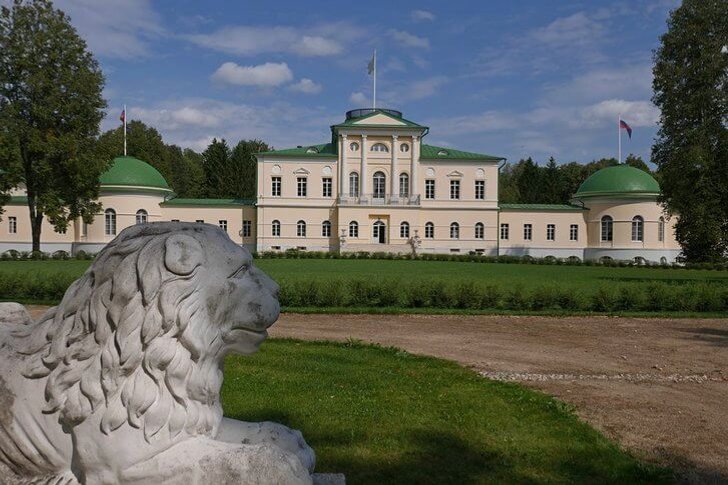Rzhev is an ancient city in the Tver region. Its history is connected with merchants and trading enterprises of the 18th-19th centuries. The building of the State Bank is an example of the development of urban architecture of that period. Many Old Believers lived in the district in the past. The Church of the Intercession of this community has survived to this day.
The Battle of Rzhev put the area on the map of World War II. Subsequently, Rzhev was ranked among the cities of military glory. Among the sights of the military theme stands out the memorial complex, also known as Victory Park. Several notable objects have been collected over a large area. The German military cemetery is adjacent to the burial places of Soviet soldiers. Several memorials have been opened, including a monument to Jews who passed through the ghetto.
What to see and where to go in Rzhev?
The most interesting and beautiful places for walking. Photos and a short description.
- Soviet square
- Museum of Local Lore
- The hut-museum of I. V. Stalin
- Okovets Cathedral
- Church of the Intercession
- Church of the Ascension
- Church of the New Martyrs and Confessors of Russia
- Monument to revolutionaries
- Monument to General A. N. Seslavin
- Steam locomotive - a monument to the Rzhev railwaymen
- Obelisk to the liberators of Rzhev
- Avenue of Heroes
- Rzhev memorial complex
- Building of the State Bank
- Manor Stepanovskoye - Volosovo
Soviet square
Central square of the city. The alley divides the territory into two parts. Around built, both residential and administrative buildings. An amusement park, a main post office building, a cinema and a children's clinic adjoin the Khrushchevs. In 1938, a monument to Lenin was erected on the square. In front of it is a platform for demonstrations and a podium for speaking to the audience.
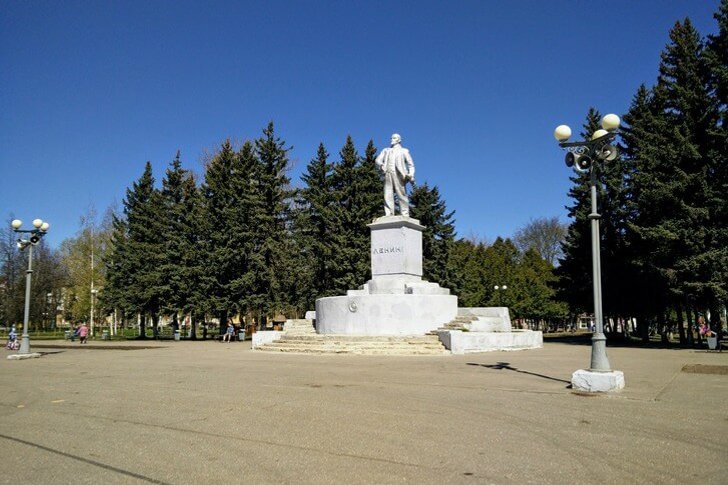
Museum of Local Lore
Works since 1916. Initially, the collection was based in the premises of the City Council. Most of the exhibits were destroyed or disappeared during the Great Patriotic War. The museum building was also destroyed. In the 60s, a new local history exhibition was opened in the building of the Okovets church. Part of the exposition is devoted directly to the city, part - to its military history. The current building is an architectural monument of the 18th century.
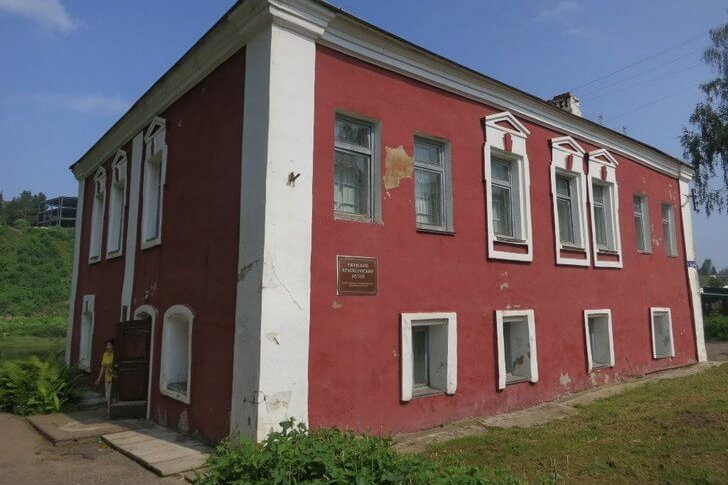
The hut-museum of I. V. Stalin
Located in the village of Khoroshevo. The small wooden house is famous for Stalin's only visit here. The Secretary General stayed here during his trip to the front in 1943. In addition, it was in this house that a decision was made to hold the first salute in the USSR on the occasion of the liberation of Orel from Nazi invaders. The hut-museum is mostly occupied by the library. Only one room is reserved for the exhibition.
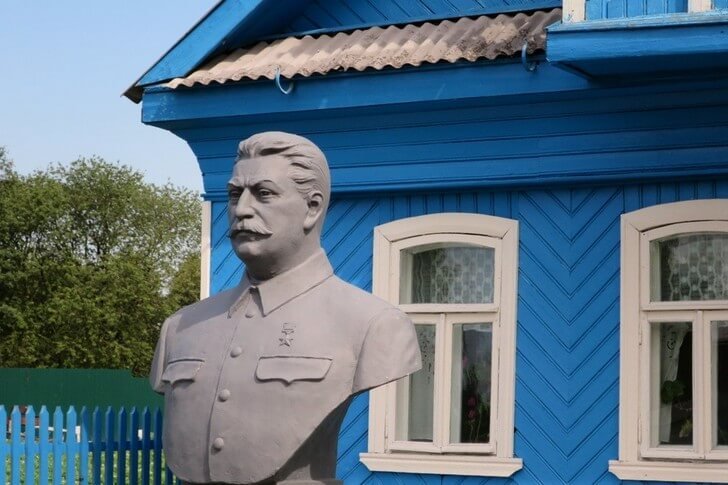
Okovets Cathedral
Dated to the first half of the 19th century. After its closure during the Soviet era, there were alternately a warehouse and a museum here. Then the premises were abandoned, and they began to restore only in the 90s. The exterior of the temple stands out from the surrounding buildings. White columns and a domed roof are not typical for such structures. Nearby are a massive bell tower, utility rooms and a church shop.
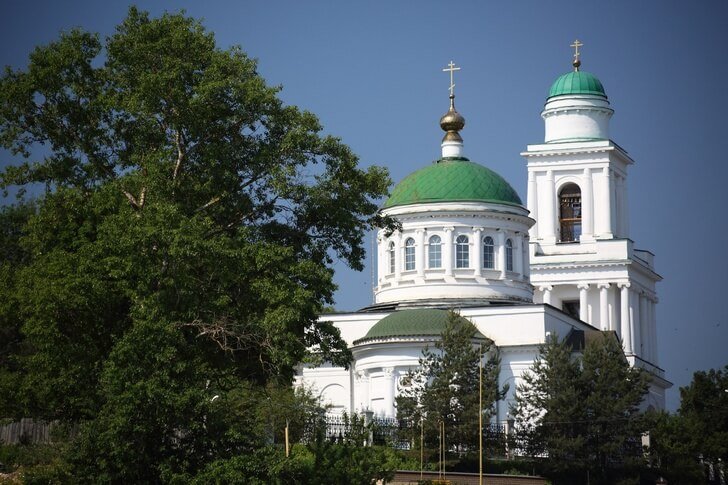
Church of the Intercession
Erected in 1908 and belongs to the community of Old Believers. At the same time, an almshouse and a large Sunday school were opened. They were abolished after the revolution. The Church of the Intercession is the only church in the city that has never been closed. Architecture is a traditional Russian style. A refectory and a three-tiered bell tower are attached to the church. The largest of the eight bells weighs one and a half tons.
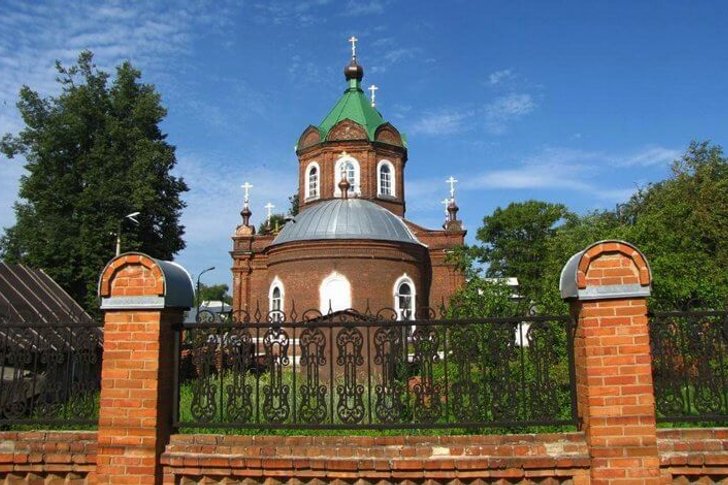
Church of the Ascension
Built in the middle of the last century. Before closing in the 30s of the XX century, the temple had a modest decoration. However, among the shrines were valuable icons. Some of them returned to their original place after restoration and re-consecration in the 80s. Restoration work on the building and the surrounding area turned out to be large-scale. Including the old graves had to be moved from the walls.
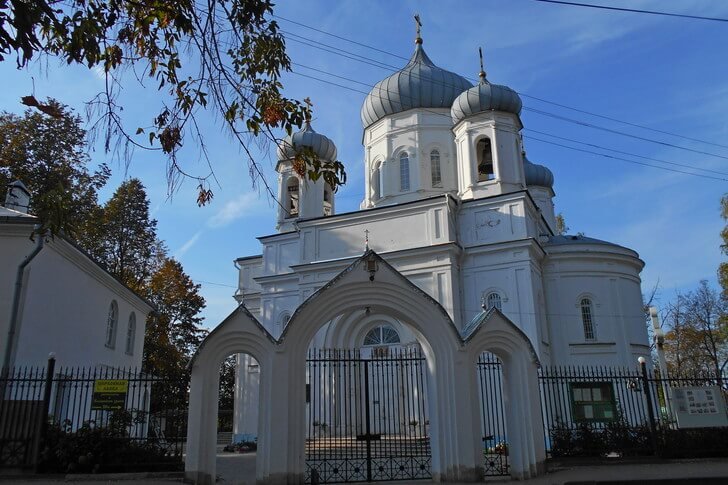
Church of the New Martyrs and Confessors of Russia
Located in the central part of the city. The name is given in honor of a particularly revered icon, which is kept in the temple. Since 1997, a temporary wooden church has stood here. Services were held in it for 7 years, until the construction of the stone temple was completed. Its height is 37 meters. Among the six domes, the central one stands out. The bells were made in the Urals, the largest one weighs about one and a half tons.
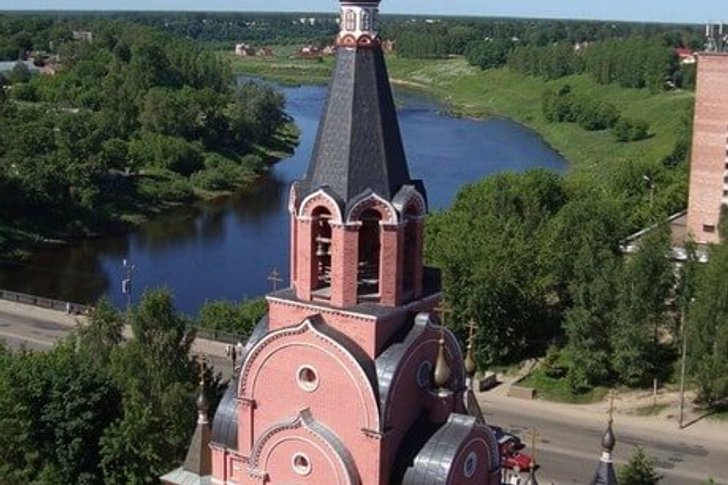
Monument to revolutionaries
The composition appeared on Revolution Square in the 80s of the last century. On high pedestals there are large busts of K. Zhigunov, I. Bodyakshin and Sh. Ioffe. They were among the Rzhev delegation and represented the city at the II All-Russian Congress of Soviets. A dedication to the revolution and its main fighters: workers, peasants and soldiers is displayed on a bronze ribbon. The author of the project is People's Artist E. Antonov.
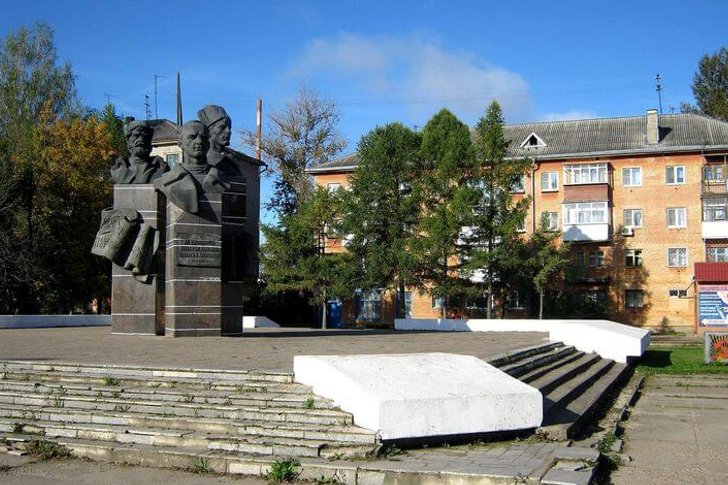
Monument to General A. N. Seslavin
Installed in 2012. Seslavin is a native of Rzhev. He became famous during the war of 1912 as a partisan. In addition, the hussar participated in other major military campaigns. They wanted to erect a monument in his honor at the beginning of the last century, but then the project was not implemented. The bust was erected on a pedestal, which is replete with inscriptions. Not far from the monument there is an oak planted by Seslavin's father.

Steam locomotive - a monument to the Rzhev railwaymen
It was installed in 1973 on the territory of the Railway Workers' Park. Among those invited to the grand opening was the writer Boris Polevoy. The monument is dedicated to the feat of railway workers during the Great Patriotic War. It is made in the form of the front part of the steam locomotive SU 208-64, smoothly turning into a brick curly wall. There are inscriptions on it, and the design itself resembles wings and imitates forward movement.
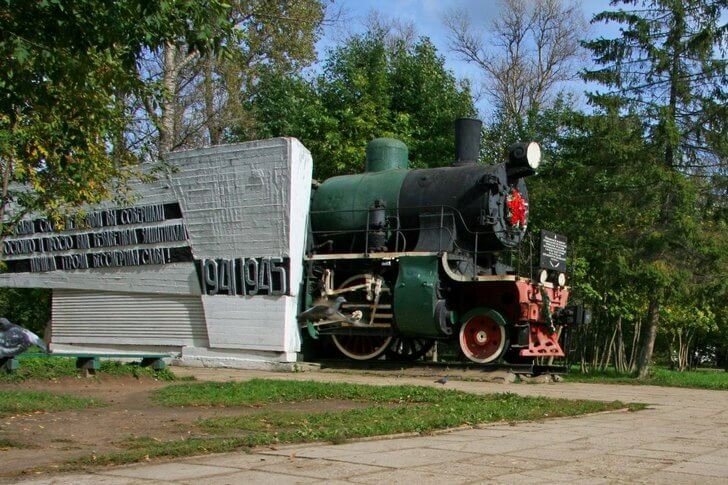
Obelisk to the liberators of Rzhev
It stands on the left bank of the Volga since 1963 and belongs to the territory of the Mound of Glory. Stairs lead to the granite pedestal from different sides. With the help of bas-reliefs, the story of the feat of the defenders of the city is told. Various incidents happened to the obelisk during its existence. For example, it suffered from a fire and was damaged by vandals. Each time the attraction was promptly restored.
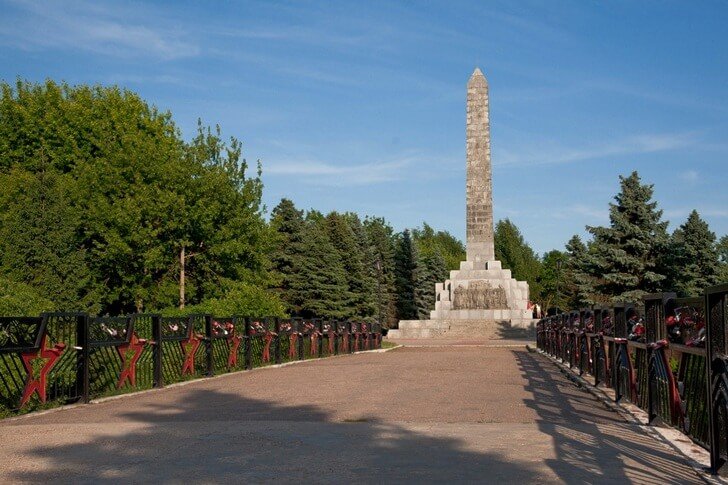
Avenue of Heroes
It stretches from Sovetskaya Square to the obelisk to the soldiers who died during the liberation of the city during the Great Patriotic War. Opened in 2008 in memory of the participants of the Rzhev battle. Along the paved path there are small granite pillars of the same type with signs. Each is marked with the names of the Heroes of the USSR who fought in these parts. Among them are marshals G. Zhukov, A. Pokryshkin, I. Konev.
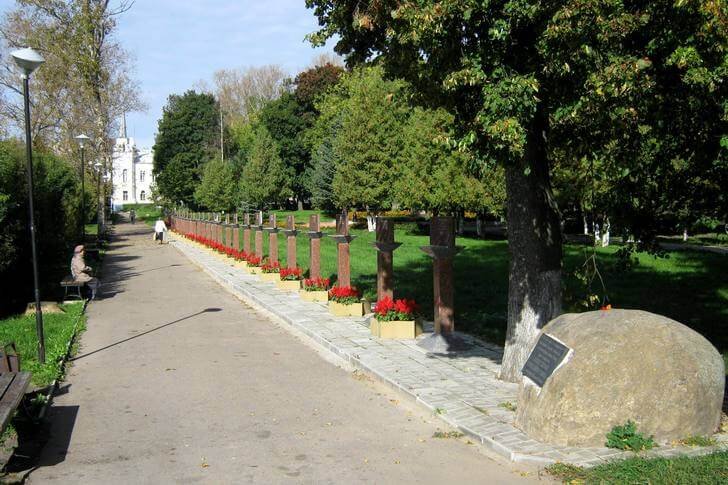
Rzhev memorial complex
The vast territory is also called the Peace Park. It is divided into several parts. The memorial to the soldiers of Kazakhstan was founded in 2010. They fought here during World War II. The cemetery of Soviet soldiers in 2002 acquired a chapel named after Alexander Nevsky. In the same year, a German military cemetery was opened. Nearby is a monument in memory of the prisoners of the Jewish ghetto.
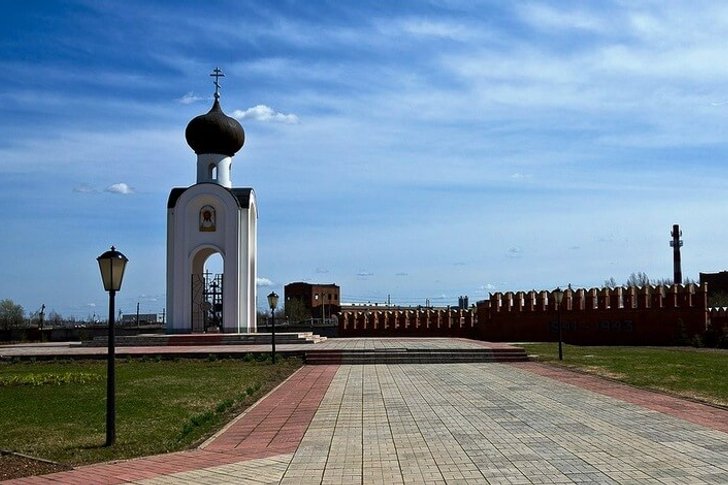
Building of the State Bank
Rzhev was famous for its developed trading sector. The Ryabushinsky brothers opened several bank branches in the city at the very beginning of the last century. The building of the State Bank was built around the same years. It was erected on the site of an old hotel. The architectural style is modern with the addition of ancient Russian motifs. The house for employees belonged to the bank. The spire on the tower at different times was decorated with an eagle, a coat of arms and a star.
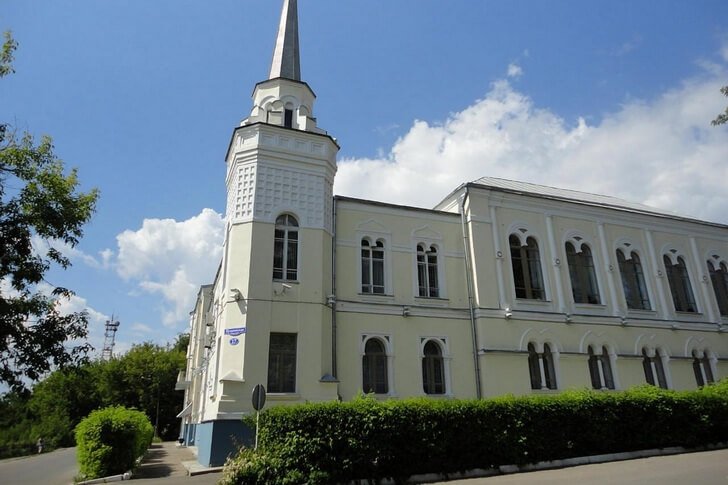
Manor Stepanovskoye - Volosovo
It is located 80 km from Rzhev. In the past, this family estate belonged to the princes Kurakins. The estate was founded in the 90s of the XVIII century. Construction was delayed due to the death of the first owner. His brother completed the project anyway. After nationalization, valuable things were taken out of here. And after the war, the house and part of the adjacent buildings were given over to a mental hospital. Restoration work is currently underway.
